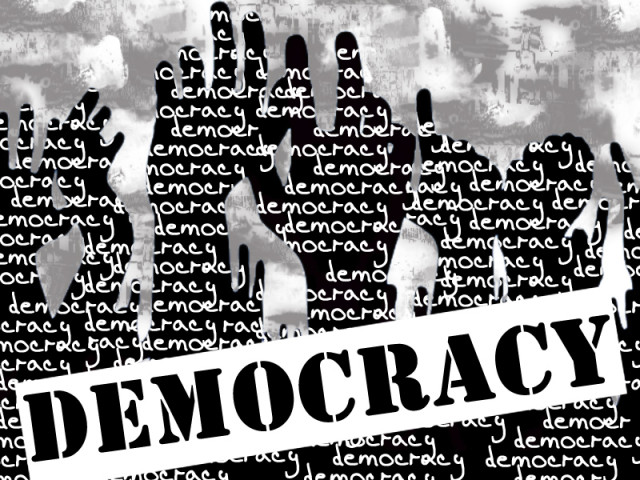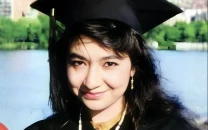Analysis: Trials and errors of democracy
You cannot have democracy without passing through a phase during which everything appears to be coming unstuck.

It takes a long time for democratic institutions to be built and start functioning within the scope and limits envisaged for each one under the Constitution. DESIGN: SUNARA NIZAMI
For the people of Pakistan generally the last five years have not been very pleasant, to say the least. With the economy in tailspin, prices of essentials spiking and power supplies plunging it had become almost impossible for most Pakistanis to make both ends meet.
The rise of militancy and widespread lawlessness had on the other hand cheapened life itself. Intolerance seemed to have taken hold of the entire society. And corruption had turned into a national pastime.
One is tempted to blame democracy for all the troubles of the last five years. But as they say, you cannot make an omelet without breaking an egg. In the same way, you cannot have democracy without passing through a phase during which everything appears to be coming unstuck. It takes a long time for democratic institutions to be built and start functioning within the scope and limits envisaged for each one under the Constitution.
You cannot completely get rid of corruption when both democracy and market economy are functioning in unison. Both are good systems but both have some serious side effects. Corruption could of course be minimized if you have an independent judiciary, a free media and a strong parliament. It was a strong parliament which could pass the 18th, 19th and 20th amendments unanimously. Considering the fact that every political party worth its name (except JI and PTI) were represented in the outgoing parliament and every one had its own manifesto but exhibiting remarkable maturity and settling to reach unanimity through give and take they rendered the 1973 constitution to its original form, granted the provinces their long-standing demand of autonomy and the president voluntarily transferred his powers to parliament.
The superior judiciary has asserted its independence effectively during the last five years, but unless the lower judiciary is liberated from the grip of corruption, the judiciary as a whole would remain prone to financial and other temptations. The media is free but with the right to information law still in incubation it is not logical to expect it not to deal in half truths. Therefore, corruption continues to be a major problem facing our society.
And it is not only because of the democratic transition that the economy had gone into a tailspin. The major reason for the crisis is attributed to our escalating dependence on foreign dole since the very inception of Pakistan. We have continuously refused to live within our means and at the same time consistently rejected the idea of generating our own resources by expanding our tax base and by making all those earning taxable incomes to pay their dues.
Transitions are always accident prone, especially when a society attempts to transit from an undemocratic system to a democratic one. That we came out of the current phase of transition without being derailed by any major mishap is a matter of satisfaction. But the transitional phase is not yet over. In our case it is likely to continue for decades considering the time lost because of military interventions. One cannot completely rule out things going into the reverse gear while we are negotiating the next phase of transition at the time of elections or when it is time for transfer of power from one civilian set-up to the next one. Even the next elected government would perhaps continue to remain prone to transition-related accidents.
Both the ruling coalition, led by the Pakistan Peoples’ Party and the opposition by the Pakistan Muslim League—N deserve full marks for guiding the country through a very difficult phase of transition. Hopefully, they would continue to display similar political maturity while negotiating the challenges facing them in the immediate future like setting up an interim government, contesting the elections and accepting their results. The superior judiciary and the media also performed their respective roles admirably in the last five years. And the Army also deserves praise for resisting pressures to intervene from quarters having no patience for the tribulations of democratic process.
Published in The Express Tribune, March 16th, 2013.





1724912122-0/Untitled-design-(1)1724912122-0-208x130.webp)













COMMENTS
Comments are moderated and generally will be posted if they are on-topic and not abusive.
For more information, please see our Comments FAQ